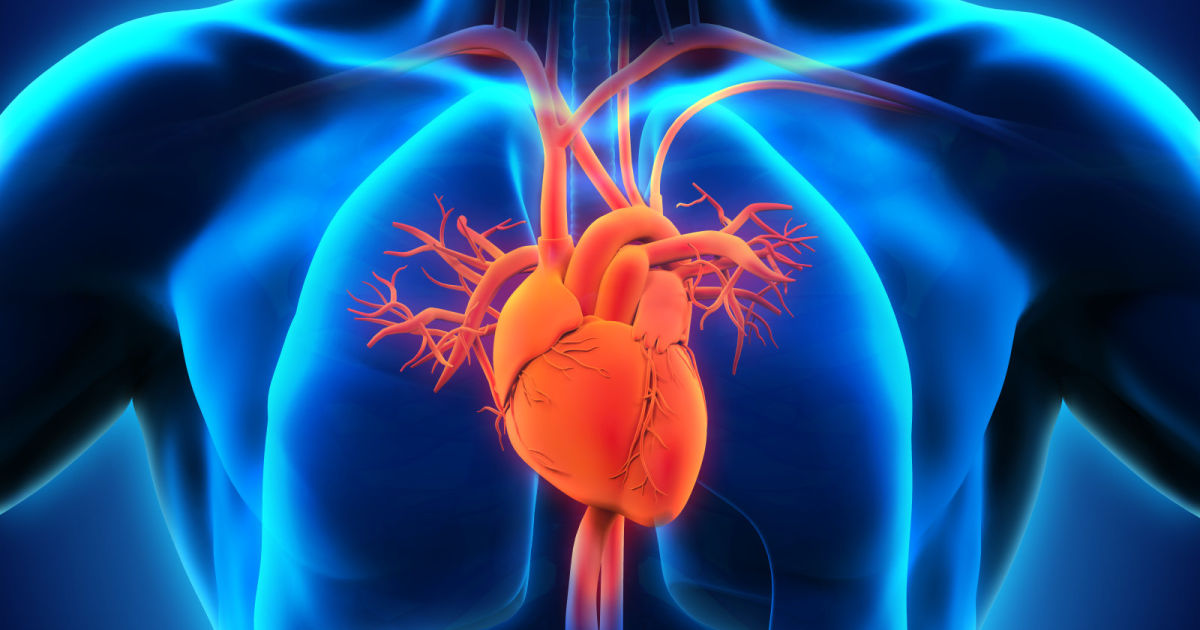Causes And Risk Factors Of Paroxysmal Supraventricular Tachycardia
Paroxysmal supraventricular tachycardia (PSVT) is a disorder characterized by episodes of rapid heartbeat. The hearts of individuals who have PSVT can beat over two hundred times per minute. A healthy individual's heart rate typically ranges from sixty to one hundred beats per minute. Though it can be scary for the patient, paroxysmal supraventricular tachycardia is usually not a life-threatening ailment and indeed, might not need treatment.
Patients are only treated long-term if their condition alters the way their heart functions in ways that endanger their health. A baby who has an abnormal heartbeat most likely has PSVT. If an adult under sixty-five has episodes of a sped up heart rate, it is more often paroxysmal supraventricular tachycardia as opposed to a more serious condition such as atrial fibrillation.
Wiring Problem In The AV Node

Sometimes, the cause of paroxysmal supraventricular tachycardia is a wiring problem in the atrioventricular node. The heart actually runs on electricity, and the AV node is part of its electrical system. It controls how fast the heart beats, and the electrical signals from the chambers found at the top of the heart, or the atria have to go through the node to reach the chambers found at the bottom of the heart, or the ventricles. Basically, the AV node retards the electrical current before it reaches the ventricles. This way, the atria can contract all the way before the ventricles start to contract. But some individuals have an extra wire in their heart that bypasses this system and allows the heart to beat abnormally fast.
Atrial Fibrillation

Atrial fibrillation is another condition where the heart beats abnormally. In this case, the muscles of the heart fibrillate, or quiver. As with paroxysmal supraventricular tachycardia, the heart’s electrical system does not function the way it should, and the muscles in the atria quiver instead of contract. This also causes an abnormally rapid heartbeat. The rate can rise to as much as 160 beats per minute. The symptoms of atrial fibrillation and PSVT are also similar, with dizziness, shortness so of breath, chest pain and faintness.
However, unlike most cases of paroxysmal supraventricular tachycardia, atrial fibrillation can be dangerous. Complications include blood clots, congestive heart failure, and other heartbeat abnormalities. Stroke is also a risk with atrial fibrillation. The disorder is more likely to be the cause of abnormal heart rate in individuals over sixty-five than PSVT.
Wolff-Parkinson-White Syndrome

Wolff-Parkinson-White syndrome is a major risk factor for paroxysmal supraventricular tachycardia. In this condition, the heart has abnormal electrical pathways that lead to abnormal heart rhythms, or arrhythmias. The pathways let electrical currents bypass the AV node, which allows the currents to move too quickly to the ventricles. In this condition, the heart may also have an electrical pathway that bounces signals from the ventricles to the atria. Symptoms include the usual tachycardia, palpitations, dizziness, and faintness associated with other arrhythmias.
Individuals with Wolff-Parkinson-White syndrome are sometimes born with extra electrical wiring in their heart or are born with a heart that is abnormal in other ways. The disorder is also a complication of other diseases such as Pompe disease, hypokalemic periodic paralysis, and tuberous sclerosis complex. Some individuals with the disorder are asymptomatic, but in rare cases, the syndrome can lead to heart attack and sudden death.
Atrial Tachycardia

Atrial tachycardia happens when an electrical signal switches on from an abnormal place in the atria and fires quickly and repeatedly. This, in turn, causes the atria to contract faster than it normally would and be out of sync with the lower chambers. It is literally a type of short circuit in the heart. This keeps the atria from filling up with blood between beats and can lead to the usual symptoms of arrhythmia though some individuals do not experience symptoms. It happens most often in the elderly and patients with heart disease.
The risk factors are cardiomyopathy or an atrium that’s stretched because of high blood pressure. Individuals who have had heart attacks are also at risk. It can lead to a weakened heart muscle followed by heart failure and atrial fibrillation. Sometimes, doctors do not know what causes atrial tachycardia.
Ventricular Tachycardia

As its name says, ventricular tachycardia is a condition that causes the heart’s nether chambers to beat too quickly. In this case, the ventricles are not only out of sync with the upper chambers but uncoordinated. Again, the too-rapid beating of the heart prevents them from filling with blood the way they should. Sometimes the symptoms of the condition, also called V-tach, lasts for mere seconds. There may not be any symptoms at all. On the other hand, ventricular tachycardia can cause cardiac arrest and is a complication of other types of heart disease. It can also be a side effect of a medication, the result of substance abuse, or a complication of an inflammatory disease.
